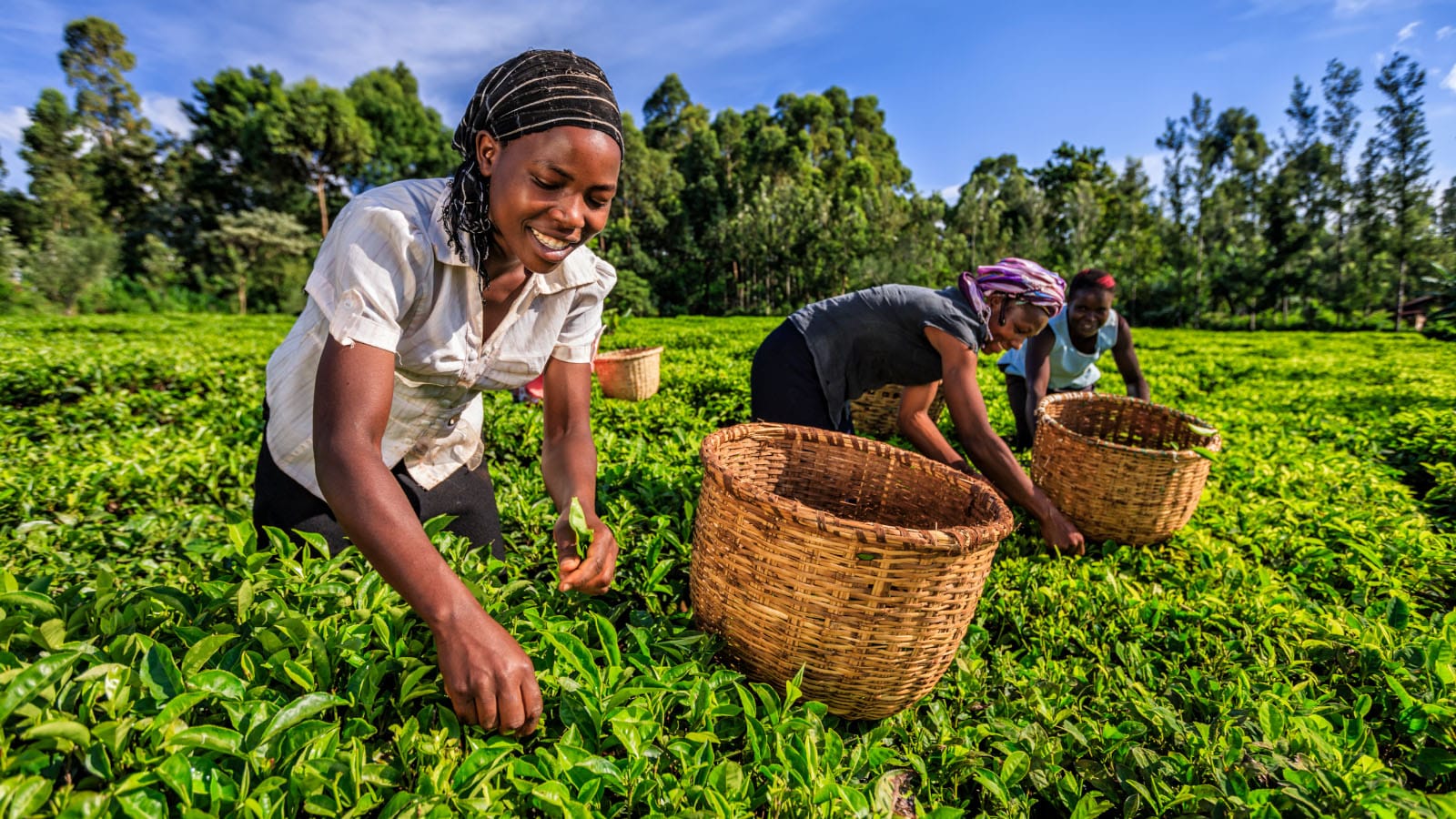Resilience and adaptation are nothing new for African communities
The African narrative on climate change is morphing from a passive stance to a more proactive engagement, with the inaugural Africa Climate Summit 2023 exemplifying this shift. Central to Africa’s climate discourse are the frontline communities, whose livelihoods are often the first to be impacted by climate adversities. These communities, rich in indigenous knowledge, have much to offer in terms of sustainable climate solutions.

“Climate change is a global issue, but its impact is felt locally, and it affects African communities on the frontline the hardest.”
Frontline communities are those that are first and most severely affected by climate change. In Africa, these communities are often located in vulnerable regions such as coastal areas, arid and semi-arid lands and floodplains. They are predominantly made up of indigenous peoples, small-scale farmers and fisherfolk, who depend on natural resources for their livelihoods. Climate change poses an existential threat to these communities, as they experience extreme weather events, droughts, floods and rising sea levels, which exacerbate existing vulnerabilities. Women in these communities play a vital role in natural resource management, food production and supporting their families. However, they also face gender-specific challenges, such as limited access to land, credit and decision-making power, which exacerbate their vulnerability to climate change.
“African communities have been dealing with resilience and adaptation for centuries. There is a lot the world can learn from us.”
Across Africa, frontline communities already exhibit remarkable resilience and innovation in sustainable farming and environmental stewardship. Agroforestry in West Africa has been shown to enhance biodiversity and bolster climate resilience, while ingenious water harvesting techniques in regions like the Sahel secure vital water supplies. In Namibia and Botswana, community-based natural resource management empowers locals, ensuring both improved livelihoods and successful wildlife conservation. Rich in traditional medicinal knowledge, these communities contribute invaluable insights to modern medicine. Proactively, these communities lead in climate adaptation, diversifying agriculture and livelihoods while employing early warning systems for extreme weather.

Existing resilience and adaptation capacity needs to be enhanced
Empowering frontline communities involves providing them with the tools, resources and platforms to actively participate in climate change mitigation and adaptation efforts. This can be achieved through:
Strengthening the capacities of frontline communities to understand and respond to climate change through training, education and awareness-raising initiatives. The Maasai Wilderness Conservation Trust empowers Maasai communities in Kenya through sustainable agriculture and resource management, promoting biodiversity and improving livelihoods. Similarly, the African Women’s Network for Community Management of Forests uplifts women in Central and West Africa, integrating them into forest governance and climate action. Together, these initiatives champion community-led, inclusive environmental stewardship.
Ensuring that frontline communities have access to financial resources, technology and information to implement climate-resilient practices and initiatives.
Creating avenues for frontline communities to engage with policymakers and influence climate change policies and actions at the local, national and international levels. The Women’s Environment & Development Organization plays a pivotal role on the global stage, advocating for gender equality and integrating a women’s perspective into environmental and climate policy-making processes. Meanwhile, the Pan-African Climate Justice Alliance ensures the voices of Africans, especially women, are amplified in climate change negotiations, fostering a more inclusive and equitable policy environment across the continent.
Acknowledge and integrate women’s indigenous knowledge, skills and practices in climate change adaptation and mitigation strategies. IWONET, or the Indigenous Women Network, works to strengthen the role of indigenous women in natural resource management and promote the use of indigenous knowledge in climate resilience.
Strengthen networks and alliances among women, frontline communities, civil society organisations and other stakeholders to amplify their voices and increase their impact. The Network of African Women Environmentalists seeks to enhance the capacity of African women to influence climate change decisions and policies, promoting networking and information sharing among women across the continent.
COP28's frontline breakthroughs
At COP28, we have witnessed a pronounced emphasis on climate justice, marked by robust advocacy for key initiatives for frontline communities. These include advocating for an increase in adaptation finance to USD40bn a year by 2025 and detailing the delivery of the promised USD100bn to support developing countries. Such efforts have led to the early operationalisation of the Loss and Damage Fund. Here are other key developments that have fostered support for frontline communities:
Endorsed by 123 countries, this declaration emphasises collective action to build climate resilience in vulnerable countries and communities, particularly those affected by fragility, conflict or severe humanitarian needs. It focuses on enhanced financial support, strengthening technical and institutional capacities, and prioritising local ownership and results in climate adaptation and resilience efforts.
Endorsed by over 60 countries, this partnership aims to integrate gender considerations into the implementation of the Paris Agreement. It focuses on creating equal job opportunities in emerging markets, facilitating finance to women and girls in climate-impacted regions, and advocating for gender-specific data collection. The conference has underscored the critical role of women in climate solutions, emphasising the need to mitigate climate change impacts on women and girls. Our next blog post highlights the important role that women play in scaling climate action.
Supported by 123 countries, this declaration marks a major step in recognising the health impacts of climate change. It strives to place health at the centre of climate action and accelerate the development of climate-resilient, sustainable and equitable health systems. Notable financial commitments include USD300m from the Global Fund and USD100m from the Rockefeller Foundation, ensuring resources for health-related climate adaptation and resilience.
This project, focusing on disaster risk reduction in African cities like Cape Coast, Lusaka and Port Louis, highlights the urgent need for tailored local solutions in building resilience against climate-induced hazards in rapidly urbanising and vulnerable communities. This initiative is particularly relevant for frontline communities facing increased risks due to climate change.
As at the time of publication, there had been limited progress on the Global Goal on Adaptation with developing countries having had rejected the draft text due to concerns that a lot of their contributions had not been included, such as financial targets and similar considerations. We will continue to watch closely for any updates around this.
Explore more here
Find out how PwC is making an impact at COP28
Authors: Yulea Roopai, Associate, Sustainability and Climate Change, Strategy& and Matt Muller, Senior Manager, Sustainability and Climate Change, Strategy&
Contributors: Chantal van der Watt, Director, Sustainability and Climate Change, Strategy& and Matimba Shimange, Associate, Strategy&
Contact us

Lullu Krugel
Chief Economist and Africa Sustainability Leader, PwC South Africa
Tel: +27 (0) 82 708 2330
















